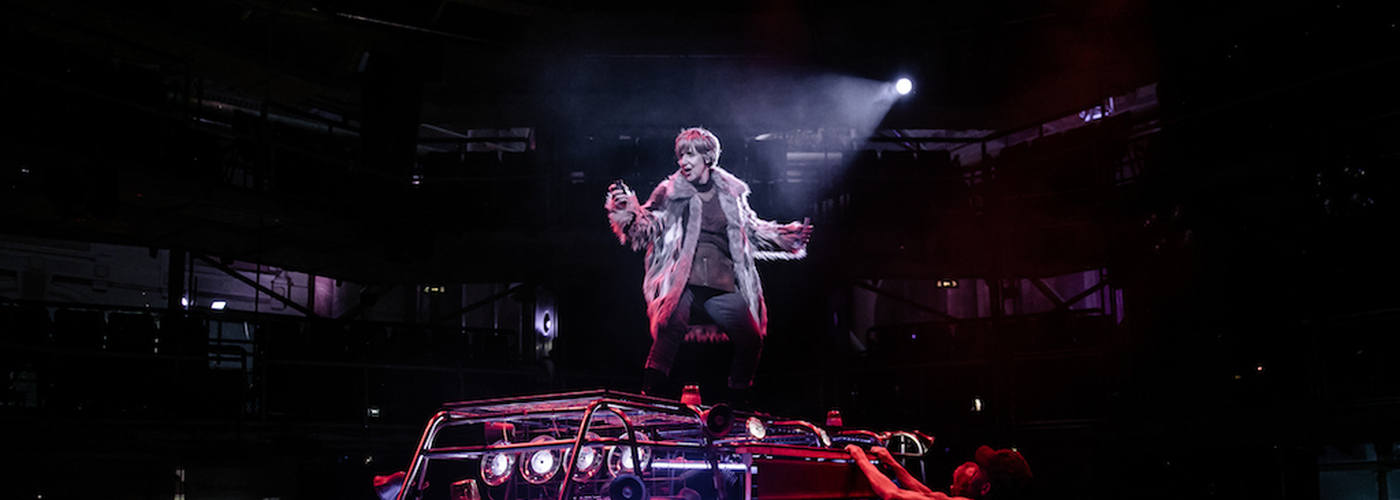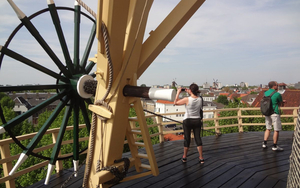Joan Davies wonders how relevant the ‘greatest anti-war play’ is today
***
We’ve had the fun Christmas shows, now the Royal Exchange has returned to present its serious side with an update of one of the heavyweights of twentieth century theatre: Bertolt Brecht’s ground-breaking Mother Courage.
War rages over decades, but it’s business as usual for Mother Courage. She roams the grid from one army camp to another, her ragtag offspring in tow. Boots, beer, drugs, guns - anything a soldier desires can be bought off the back of MC’s cart
Truth is a rarity in this world. Even the title misconveys. There’s no maternal giant striding across the battlefields and saving the day with warmth, wisdom and bravery. Instead Mother Courage stoically plods on, fighting the commercial fight to ensure mouths are fed and backs clothed.
Brecht, in exile following the Nazi rise to power, wrote this in 1939. It’s a response to the rise of fascism and regarded by many as one of the greatest anti-war plays, making its points through an episodic story set in the European Thirty Years' War.
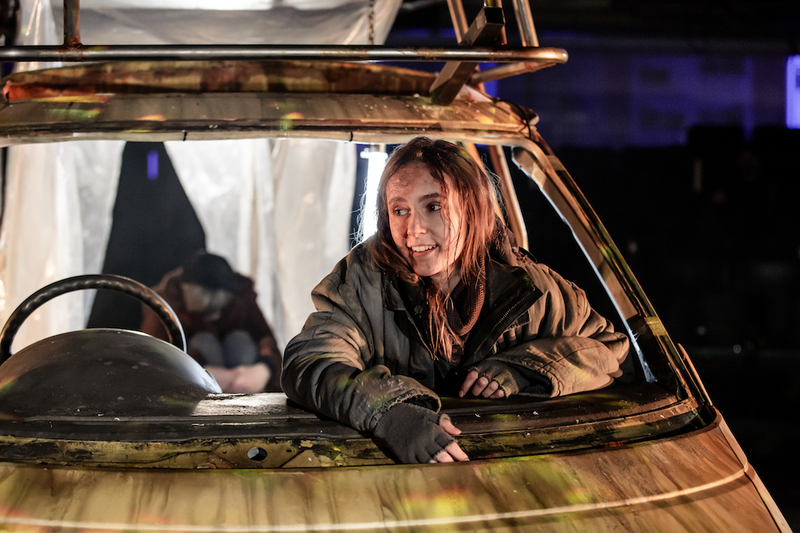
This production - shortened, enlivened with punk numbers and played with speed by an engaging cast - is clearly on message. Julie Hesmondhalgh plays Courage as a doughty, often flippant, northerner who gets on with it; head down, forward to the next battle, surviving. She provides what armies want: comfort through food, clothing, drink and sex. The performance is strong: this woman has drive, and courage to continue in the face of massive adversities. The rest of the cast deliver too.
That there are some audibility problems is a disappointing distraction. The Royal Exchange’s theatre in the round layout doesn’t help but it’s hardly an unknown. Similarly, the essentially loud ‘war’ props shouldn’t be drowning the dialogue. Timing is all. And we also know there’s no reason for poor audibility in musical numbers in this theatre.
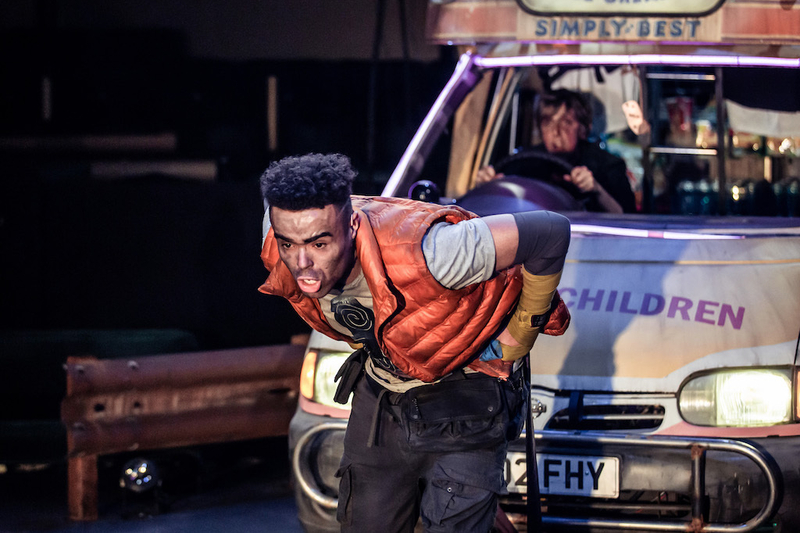
Brecht is now a victim of his own success. The theory underlying his approach to theatre has been used, wholesale and in minibites, throughout the last 70 years; so much so that many of his once new techniques - abandoning the fourth wall, demonstrating the artifice and discouraging emotional engagement - are now commonplace. Particularly in a theatre like the Royal Exchange where sets are minimal.
But it’s more than that. Brecht used theatre to confront people with information, letting them see different characters and situations beyond their experience. Nowadays, we’re now inundated with images and stories of war and its effects, from a variety of voices across the world. We no longer have to rely on the British press, sanitised stories our grandad told us as children or indeed the theatre. Today we can possibly learn more about the impact of war in a Stacey Dooley documentary than I learnt last night.
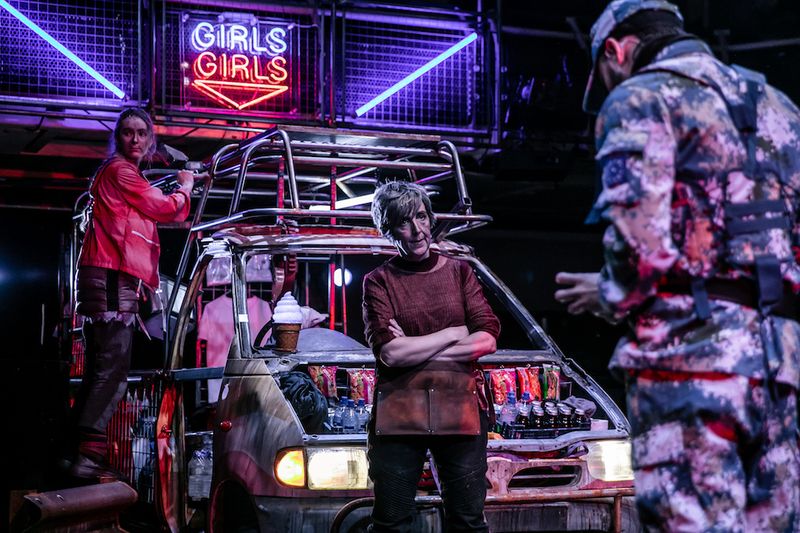
Repositioning the war to a future Europe, where countries are merely memories - replaced by a grid of zones - brings an expectation of a real modern relevance to the play. But Brecht was writing at a very different time. Merely pushing the setting forward, updating the costumes and props, and adding a deadening slew of bad language might not be enough to give this play the impact it had when I first saw it in the seventies.
It’s still worth seeing though. At its heart are some stand-out performances throughout the cast. Julie Hesmondhalgh is always worth a watch, and does, despite Brecht, elicit an emotional response, particularly at the start of act two which is much stronger than act one.
Mother Courage and Her Children is at the Royal Exchange until 2 March
Images: Richard Davenport





